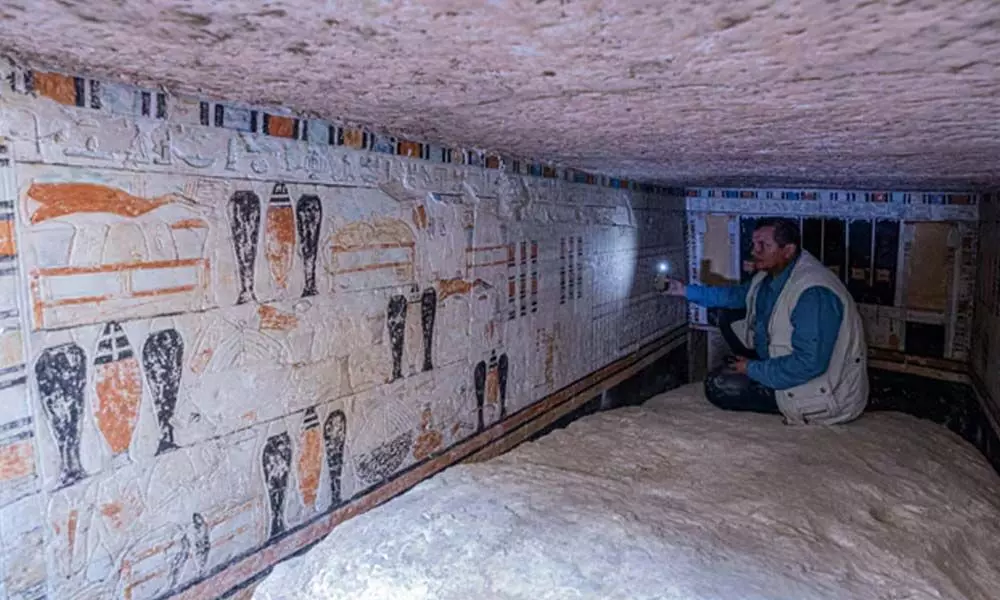Five Ancient Pharaonic Tombs Have Been Discovered In Egypt

A limestone sarcophagus and colourful decorations were found in the tomb.
- Five ancient Pharaonic tombs were uncovered on Saturday at the Saqqara archaeological site south of Cairo
- The five graves northeast of King Merenre I's pyramid, which was built approximately 2270 BC, were found by Egyptian researchers.
Five ancient Pharaonic tombs were uncovered on Saturday at the Saqqara archaeological site south of Cairo, the latest in a succession of significant finds in the area.
More than a dozen pyramids, animal burial sites, and ancient Coptic Christian monasteries can be found in Saqqara, a huge necropolis of the ancient Egyptian metropolis Memphis that is a UNESCO World Heritage Site. The five graves northeast of King Merenre I's pyramid, which was built approximately 2270 BC, were found by Egyptian researchers.
According to Egypt's Supreme Council of Antiquities' Mostafa Waziri, the five tombs belonged to prominent royal officials and are all in good shape.
As per the Ministry of Tourism and Antiquities, one of the tombs, pertained to a high-ranking officer named Iry. The tomb has a limestone sarcophagus and colourful ornamentation. While other members of the royal court were buried in the remaining tombs, along with a steward of the royal home and a priestess involved for the king's beautifying.
Egypt presented ancient riches discovered at Saqqara in January 2021, including more than 50 wooden sarcophagi dating from the New Kingdom, a finding that famed Egyptologist Zahi Hawass described as rewriting history.
Despite being repeatedly postponed, Egyptian authorities aim to unveil the new Grand Egyptian Museum nearby the Giza plateau eventually this year. The new museum, along with recent archaeological finds, is expected to aid in the revival of the country's key tourism industry.
The tourism industry has been pummelling by a series of setbacks, including a 2011 revolt, the coronavirus outbreak, and now the suspension of Russian and Ukrainian tourists, who make up a significant share of the country's visitors.
Next Story








